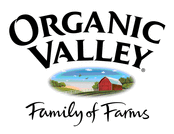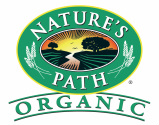|
|
|
|
Roundup More Toxic:
http://gmoseralini.org/roundup-is-more-toxic-than-declared-new-criigen-study/ Response to critism of study:http://gmoseralini.org/the-price-of-truth/ The price of truthBecause they dared to speak out about health and medical disasters they were persecuted by those they attacked by Maryvonne Ollivry Paris Match 17 January 2013 Translated from the original French article by New Europe Translations Meneton and the food industry, Vasseur and prisons, Cicolella and solvent manufacturers, Frachon and the Servier Laboratories, Séralini and GMOs… Each of them reveals the terrifying results of their revelations. A great deal of courage! What would you do if you found out unbearable truths and were left alone to face huge lobbies with colossal financial interests? For honour, for duty, and to be able to look themselves in the face, they decided to fight back. GILLES-ERIC SÉRALINI, 52 Professor and research scientist in molecular biology at the University of Caen I was told: “You know what risks you are exposing yourself, your career, your family to? You will not end up unscathed” Whistleblower and victim of GMOs Séralini is the Co-Director of the department of multidiscipline risk management (MRSH- CNRS*) as well as Chairman of the scientific council of the Criigen ; last September, he published a toxicological study destroying the official truth about the safety of GMO and of the world’s main herbicide, Monsanto’s Roundup. Intimidation? “Some people told me : “You shouldn’t throw yourself into this, it will stir up trouble.” But not my colleagues at CRIIGEN, Committee for independent research and information on genetic engineering, that I founded in 1999 with Corinne Lepage and Jean-Marie Pelt, who always supported me. Others, in a more indirect way, would sneak in a few words, at the end of a conference: ‘You do know what kind of risks you are exposing yourself, your career and your family to… After all, you are digging up a lot of things. You won’t get out of this unharmed…’ Since the results have been published, Monsanto’s managers have been asking the publisher of my scientific study to remove the article. Those who throw themselves into battle to discredit me with great violence are researchers or lobbyists who contributed to assessing their products and who need to defend some kind of financial interest. When I put into question the system that finances biotechnology studies, I obviously knew that it would bother some lobbies. But I never thought I would encounter such bad faith, such lies, at an institutional level.” Career risk. “Launching an attack on some people’s interests means that I will have to give up on a normal career advancement, despite all my scientific work. I was told I was the youngest molecular biology professor in France. I waited twenty years for a career advancement that could have come in ten.” Despair. “During those five years of working in the utmost secrecy, I was confronted with some difficulties (finding sponsors, seeds…); I had ups and downs, but I never despaired. I never felt alone, I knew I could count on the support of hundreds of researchers of all nationalities, who did speak out in my defence during a defamation lawsuit that I lodged against those lobbies, and won.” Jealousy. “Some people may be are jealous of the media coverage that we enjoy today, but I have never cared about that. It is a personal detail that has no value compared to the public health issue at hand. What matters is that our children’s bodies have become garbage cans! Everyday, I cry because of those diseases simply caused by the environment. More people have died because of chemicals than during World War II. Those who don’t want to see any cause for concern in our studies will have to answer for their serious dishonesty.” Today. “I was not expecting this flood of reactions. During the few weeks immediately following the publication of my article in the journal Food and Chemical Toxicology, I had to answer dozens of questions from the media of all countries. There are anonymous people who respect me and show support, which counters all those who think I am incapable, who call me a ‘clown’, a ‘scaremonger’! My friends are always telling me I should take some time away from the phone. I’d rather walk in the countryside.” Character. “I am a willful and optimistic person and I have always said what was on my mind. I am not looking for conflict but I cannot bear to see human health being trodden on. It’s a question of honour: I want to be able to look myself in the face. I was brought up by parents who had to live through the events in Algeria and to leave their country for Nice, my mother was a brave woman who raised my handicapped brother, and all that in a difficult neighbourhood. I didn’t have a golden childhood. It probably left its marks.” Hope. “Now, I hope that serious tests are going to be conducted by independent laboratories and over a considerable testing period – not just ninety days, so as to relieve all doubts regarding the safety or harmfulness of GMOs. Otherwise, I will always have a clear conscience as I have done my part of the job. It is then up to the consumer to decide whether they want to eat those GMOs and pesticides or not, and to call on the attention of politicians.” |






